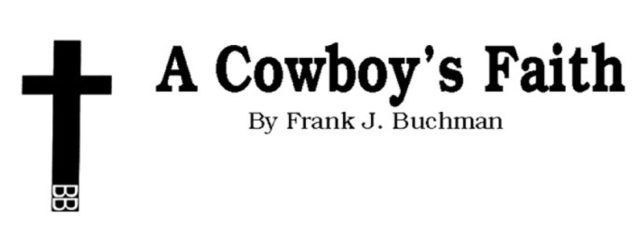All we’ve ever wanted to be is a cowboy.
Actually, lots of folks want to be cowboys. Many people even think they are cowboys, but are they really? Before we ever got a horse 48 years ago, we thought we were a cowboy, because we always wore boots, jeans, a snap-up, yoked cowboy shirt and thought about horses all of the time.
Then, when we got Spot, our first horse, there was never a question in our mind that we were a real cowboy. That personal, prejudiced-opinion has never changed, but there have been some instances that have made us reconsider exactly what a cowboy really is.
At our job party decades ago, the boss credited another worker as being a cowboy. We were deeply offended and remain so today for that statement. Admittedly, the guy did wear boots once in a while, but in our opinion he certainly wasn’t a cowboy. However, since then, we have come to realize that there really are a lot of definitions for cowboy.
Even dictionaries’ meanings vary. Our preference is: “One who tends cattle or horses, usually a mounted cattle-ranch hand.” Of course, we like writer Will James’ description, too: “A man with guts and a horse.”
It’s not that our feelings don’t get easily hurt, but the time somebody called us a “drug store cowboy” still needles us. The remark came from a young horse trainer begging for mounts. We had 12 customer horses to ride that afternoon, along with a herd of 200 cows and mares. The whippersnapper’s arrogance disgusts us to this day.
Movies and singers have had a direct influence on what people comprehend as cowboys. While these characterizations are fictional, they have had a definite sway on society’s way of thinking. Lots more folks wear hats and boots because of them, but many seem to think the clothes style is complemented by a big truck instead of a horse.
We have come to realize but hate to admit that our definition of cowboy is too biased. Another fellow’s description: “Cowboy is more of a mind set nowadays, than an actual person. He is kind, tough, hardworking and stands for morals.” We’ll just let it go at that, even though we’d obviously like to dwell deeper into the subject.
Cowboys weren’t around at the time of the Bible writing, but life-guiding philosophies were the same. First, it’s noted in Proverbs 11:17: “A man who is kind benefits himself, but a cruel man hurts himself.” Likewise, in Timothy 2:6: “It is the hard-working farmer (cowboy) who ought to have the first share of the crop (cattle).”
Directions are repeated in Proverbs 8:20: “Walk in the way of moral and spiritual rectitude in every area in the midst of the paths of justice.” Perhaps the best cowboy analysis is Philippians 4:12: “I know both how to be abased, and I know how to abound: every where and in all things I am instructed both to be full and to be hungry, both to abound and to suffer need. I can do all things through Christ which strengthen me.”
+++ALLELUIA+++
IV–25–6-20-10
